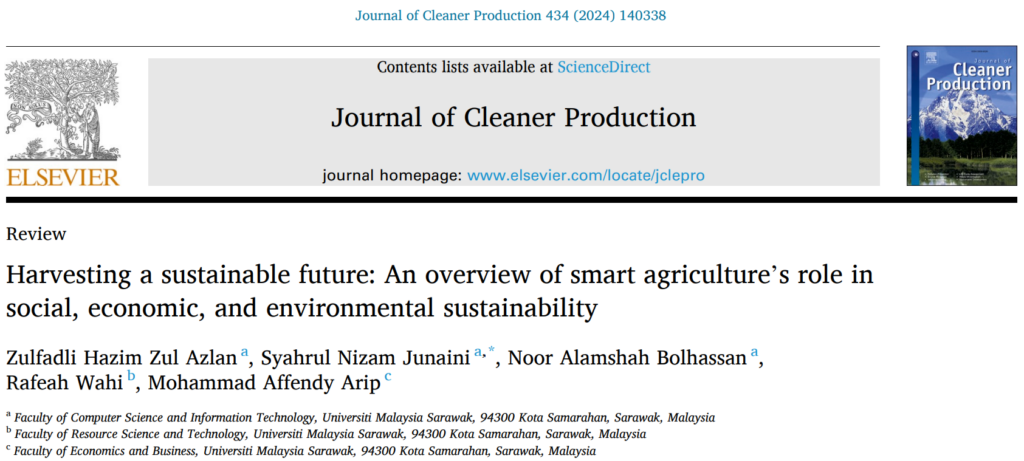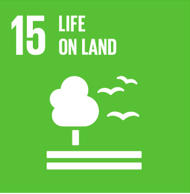Edited by Hamizan Sharbini
KOTA SAMARAHAN: A team of researchers from the Faculty of Computer Science and Information Technology (FCSIT), Universiti Malaysia Sarawak (UNIMAS) is redefining the future of sustainable smart agriculture.

Their latest paper, published in the prestigious top-tier Journal of Cleaner Production (impact factor of 11.1 and ranking in the top Q1 10% journals) is creating waves in the world of sustainable development.
The paper, titled “Harvesting a Sustainable Future: An Overview of Smart Agriculture’s Role in Social, Economic, and Environmental Sustainability,” is the brainchild of a multidisciplinary research team.
The research work was supported under the Vice Chancellor’s High Impact Grant. Spearheaded by project leader Ts. Syahrul Nizam Junaini.
Zul Azlan Zulfadli Hazim, a postgraduate student, is the main author of this article.
The team also includes Associate Professor Dr. Noor Alamshah Bolhassan, alongside Associate Professor Dr. Rafeah Wahi from the Faculty of Resource Science and Technology, and Professor Dr. Mohammad Affendy Arip from the Faculty of Economics and Business.
Their paper delves into smart agriculture, a cutting-edge approach that combines technology and data analytics.
This is not just about introducing digital technology into farming—it is about reshaping agriculture into a sustainable, efficient, and socially responsible industry.
The team explores the intricate workings of smart technologies in agriculture, their adoption, and their profound impact on sustainability.
They critically review the effectiveness of these strategies in reducing environmental impact, fostering economic growth, and enhancing social inclusivity.
It also highlights research gaps and boldly charts future investigative directions, emphasizing the need for in-depth studies on the long-term impacts of these technologies, especially in rural settings.
This paper is a testament to FCSIT’s commitment to a sustainable world, showcasing how smart agriculture can be a key player in this endeavor.
This research supports Sustainable Development Goal (SDG) number 2 (Zero Hunger) and SDG 15 (Life on land).


The full paper can be downloaded for free for a limited time.